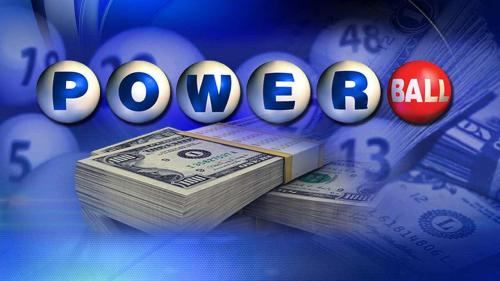https://thepreachersword.com/2016/01/07/5-reasons-why-i-dont-play-the-lottery/
5 Reasons Why I Don’t Play the Lottery
“With all of the current hoopla about the Powerball, I’m curious on your take scripturally on the lottery,” wrote Heidi, one of our regular readers.
Heidi adds her thoughts saying, “I know many Christians who don’t see anything wrong with it. I wouldn’t want to risk my soul on getting rich quick. I sure could use the money but even $450 million is not worth losing my soul over.”
Like many things, the Bible doesn’t specifically mention gambling. So we must consider scriptural principles to decide whether it is a good thing or not. I realize that some people consider playing the lottery and other forms of gambling as entertainment. It may be so for some. But I believe it is a risky form of amusement.
Here are 5 considerations that guide my decision not to gamble, including playing the lottery.
(1) It violates the laws of legitimate economy.
The Bible recognizes 3 legitimate means of transferring property to others–the law of labor, the law of exchange, and the law of giving and receiving.
We are commanded to work in order to provide for our needs and support our families (Eph 4:25; I Tim. 5:8). The Bible speaks of earning interest on money (Matt 25:27) or making a profit on selling a possession, or investing in real estate (Matt 13:44-45). In addition both giving and receiving is the result of our work and/or profits from investments (Eph. 4:28; Acts 2:45)
Gambling does not qualify as a legitimate area of economy in any of those three ways. Thus, I choose not to play the lottery.
(2) It appeals to greed and materialism. Jesus warned, “Take heed and beware of covetousness, for one’s life does not consist in the abundance of the things he possesses” (Lk 12:15). The Bible says that greed is “improper for God’s holy people” (Eph 5:3). In fact, Paul calls covetousness a form of idolatry (Col 3:5).
(3) It undermines faithful stewardship. Christians are to be good managers of their time, talents and treasure. This is taught in the parable of the talents (Matt 25:14-29). The Old Testament book of Proverbs is filled with exhortations to the wise use of money.
According to yesterday’s Today show, your chances of winning the powerball lottery are 1 in 292,201,338. Not very good odds I would say. In fact, the News Anchor said you have a better chance of being struck by lightning, becoming President of the United States, being bitten by a shark, or dying from an asteroid than winning the lottery!
(4) It sabotages self-control. Admittedly, not all gamblers are out of control. But it is a serious enough problem that even some lottery ads issue warnings and provide information on gambling hotlines.
The Mayo clinic website warns, “Compulsive gambling is a serious condition that can destroy lives.” These professional experts explain “Gambling can stimulate the brain’s reward system much like drugs such as alcohol can, leading to addiction. If you’re prone to compulsive gambling, you may continually chase bets, hide your behavior, deplete savings, accumulate debt, or even resort to theft or fraud to support your addiction.”
God’s people are to be self-disciplined, with their passions and desires under His control. (1 Cor 6:12; 9:27; Gal. 5:23).
(5) It potentially ruins lives. Lotteries often tend to victimize the most vulnerable with the lure of instant wealth to those who can least afford to lose money gambling. But even the winners’ lives are often ruined with the problems that come with unearned riches.
The tales of the unintended consequences of winning the lottery are so numerous that a simple google search will provide many sad stories of ruined lives after winning the lottery.
Many go bankrupt. Lose friends. Attract scam artists. Create friction in their families. Become addicted to other vices. And generally find that money does not buy happiness, peace of mind, or personal fulfillment.
I could list other reasons. But these are sufficient. If you think winning a big jackpot would improve your life and put you on easy street, don’t bet on it.
–Ken Weliever, The Preacherman


No comments:
Post a Comment